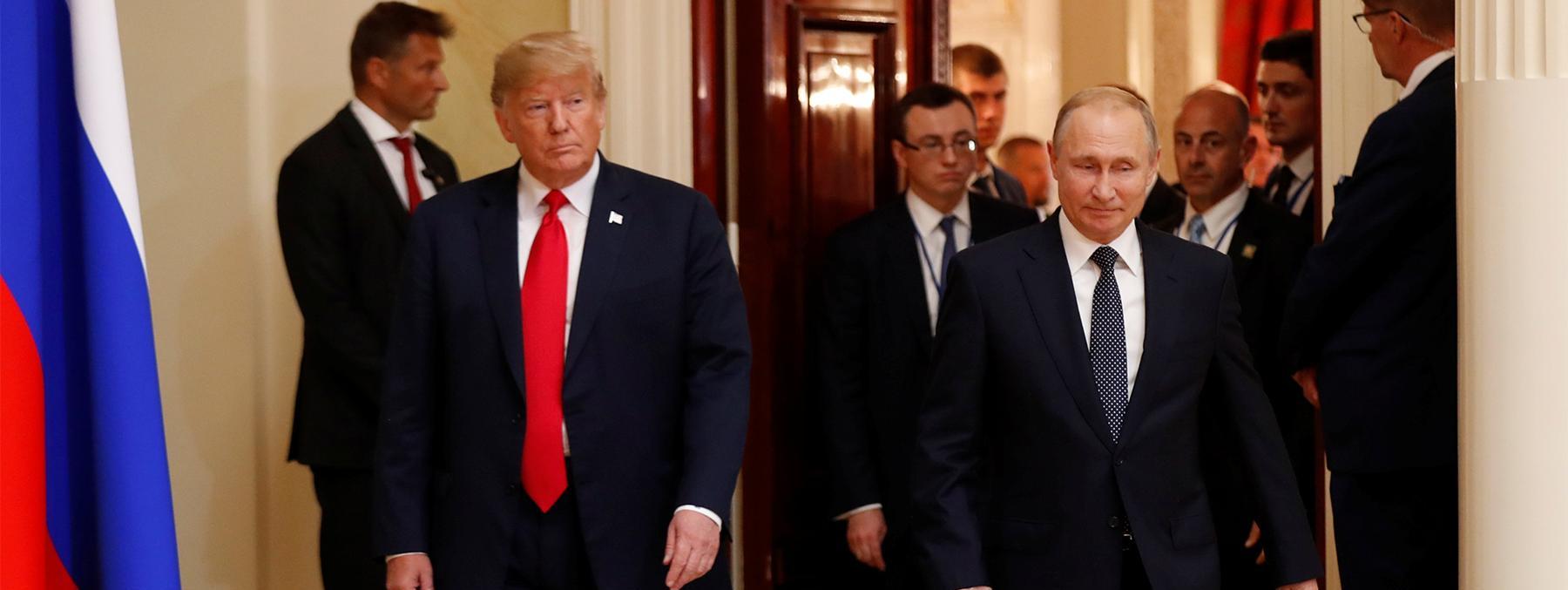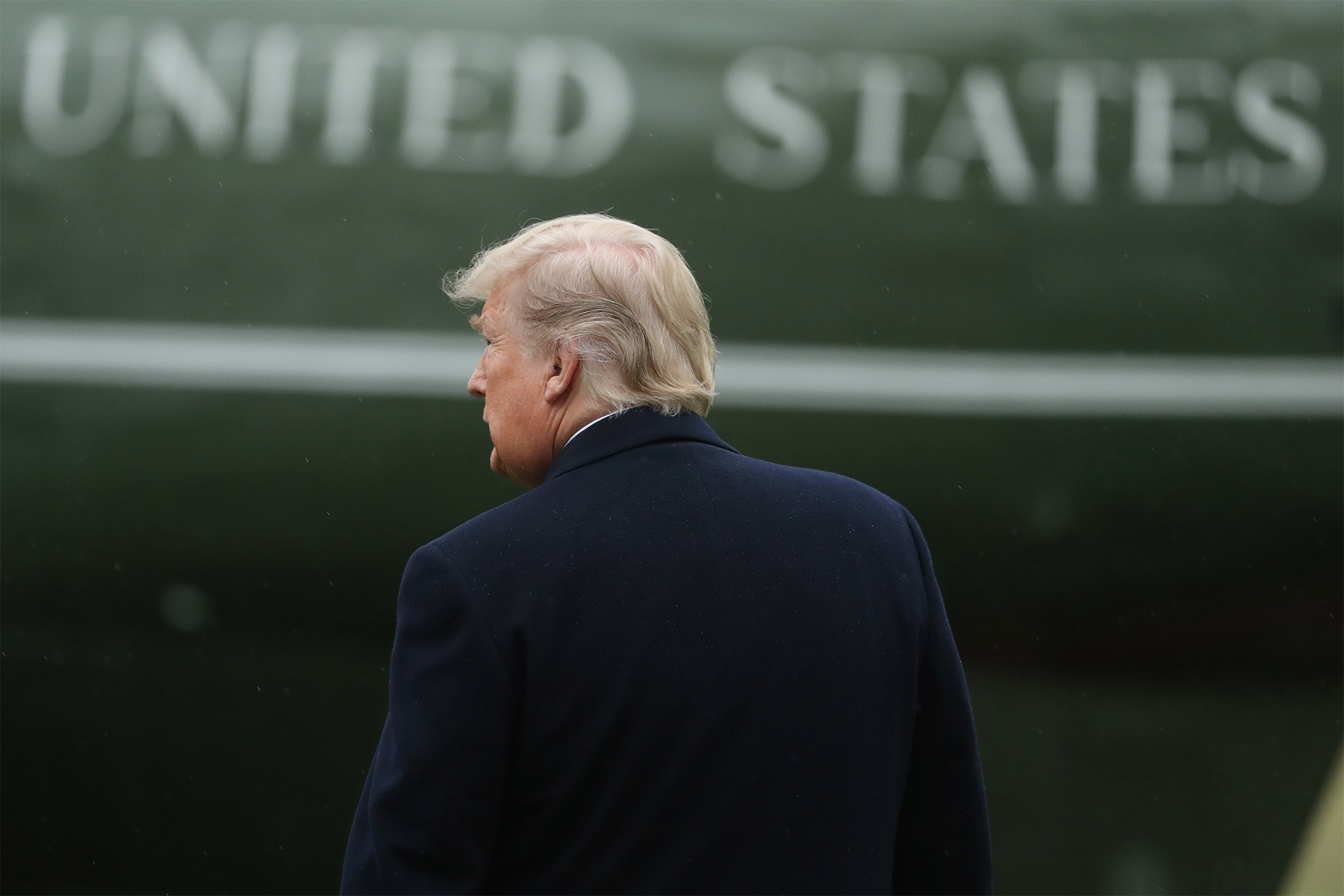I would like to ask those who back a break in Russia-US relations: how long, do they think, this pause should be held? Even William Somerset Maugham warned against short breaks: “Never pause unless you have a reason for it, but when you pause, pause as long as you can.” How much do we have to wait? Two more years until the next US presidential election? What if Donald Trump gets re-elected, or his successor fails to overcome the current divide in American society?
“We spotted each other amid a crowd
We became close and then parted ways.
Our love was without joy
Our parting will be without sadness.”
M.Yu. Lermontov
Perhaps, these four lines from Mikhail Lermontov’s poem aptly describe the expectations that prevail among the analysts with regard to the Paris meeting with the leaders of Russia and the United States scheduled for November 11. The meeting is to take place on the sidelines of a multilateral forum dedicated to the 100th
anniversary of the end of WWI. The US president added a note of pessimism to the expectations for the upcoming event saying he is still clueless as to what he is going to talk about with his Russian colleague in France. Moscow was quick to announce that the Paris meeting was planned as part of preparations for a longer and more detailed meeting in Buenos Aires on the sidelines of the G20 summit to be held between November 30 and December 1. The meeting in the capital of Argentina should mark the beginning of the practical work to plan a full bilateral summit in Washington in 2019.
Some think Vladimir Putin and Donald Trump have no reason whatsoever to meet either in Paris, or in Buenos Aires, let alone Washington. All previous eye-to-eye contacts between the two leaders in Hamburg, Danang and Helsinki have changed little in the relations between Russia and the United States, and even if they did, they clearly didn’t improve them. The mechanism for bilateral summits between Moscow and Washington, which has been tested for decades and looked as fail-proof as an AK-47, started failing and misfiring after Trump took office. The idea of taking a break in top-level meetings has been repeatedly expressed lately by both US and Russian experts. Not that the idea is groundless.
First, as long as relations with Russia remain a bridgehead in the confrontation between the White House and its political opponents in the United States, any positive outcome of Donald Trump’s talks with Vladimir Putin will be construed by the bulk of the US establishment as unjustified concessions, unprincipled compromises and the defeat of the president who is so much unloved by the establishment.
In an atmosphere of acute political paranoia, even the complete and unconditional surrender of Moscow would certainly be perceived in Washington as another insidious trick orchestrated by the evil Putin and another foreign policy failure of a narcissist, naive and incompetent Trump
Second, the unique diplomatic style of the US president precludes any expectations that the agreements reached during a personal meeting with the Russian leader will not be further subjected to corrections, subjective interpretations or even unilateral revisions even in the unlikely event that the US president slips away from the pressure exerted on him by Congress and his own bureaucracy. Donald Trump has always been generous in praising his negotiating partners from Emmanuel Macron and Justin Trudeau to Xi Jinping and Kim Jong-un, especially right after his personal meetings with them. However, these words of approbation don’t stop Trump from ratcheting up the pressure on all the “great guys” he mentions in his tweets. There is no reason to believe that Vladimir Putin will be an exception to this rule.
Nevertheless, it is difficult to come to terms with the idea of a break in the Russia-US dialogue at the highest level. The absence of such a dialogue between two leading players in international security is not just unfortunate, it is also dangerous, especially amid the many regional crises and global instability in general. The interaction between the Russian and US militaries in Syria, consultations between high-ranking diplomats on the Korean Peninsula, and occasional meetings between John Bolton and Nikolai Patrushev are certainly useful and important. But they are poor substitutes for meetings at the top level of the two countries, at least, in terms of the political and psychological effect they produce.
As long as Trump and Putin talk now and then, the world can sleep peacefully; thus, regular meetings are helpful at least in terms of global psychotherapy
In addition, just about any agreement − no matter how fleeting, tactical or technical − is highly valuable at this point. Forget agreements, even a minimal amount of progress in bringing our positions closer on Syria or Ukraine, the INF Treaty or Iran, diplomatic property or embassy staff would represent an accomplishment. Not a victory, not a resolution of fundamental differences, but a step forward nonetheless. And as long as there’s at least the slightest chance to take this step, neglecting such an opportunity would be an unwise and irresponsible act.
Finally, I would like to ask those who back a break in Russia-US relations: how long, do they think, this pause should be held? Even William Somerset Maugham warned against short breaks: “Never pause unless you have a reason for it, but when you pause, pause as long as you can.”
As far as we can see, the political and social crisis in the United States is there for the long haul. Hence, Russia and the rest of the world will have to deal with a complex, often inconsistent not always predictable, and sometimes not quite rational US partner. The bad part is that many issues in international politics cannot be resolved without the participation of Washington in principle, all the more so, if Washington decides to take the position of spoiler, which it already has in some instances, like the multilateral nuclear agreement with Iran or the Paris Climate Agreement.
How much do we have to wait? Two more years until the next US presidential election? What if Donald Trump gets re-elected, or his successor fails to overcome the current divide in American society?
Of course, no one should expect major breakthroughs from the meeting between Vladimir Putin and Donald Trump in Paris. The conversation is likely to be very specific, very businesslike and not too long. Both are interested in the effective “management of expectations” so that the meeting is not seen as yet another failure. Clearly, it is necessary − especially for the US − to learn the lessons of Helsinki, when the Trump administration managed, figuratively speaking, to “wrest defeat from the jaws of victory.” The White House should feel a little more at ease in Paris than in Helsinki at least because once the midterm elections are over, the subject of Russian intervention will inevitably lose its potency, although it may still remain a part of American political discourse.
Paraphrasing an old British joke, one could say that relations between Russia and the United States are like sex between elephants: the interaction should occur at the highest level, it always comes with numerous sound effects and clumsy and awkward moves, lasts fairly long, and its practical outcome will take a while to show even in the best case scenario. But regardless of the awkward details of elephant coitus it’s not reason enough for these wonderful animals to turn celibate.
First published in the Valdai Discussion Club.






